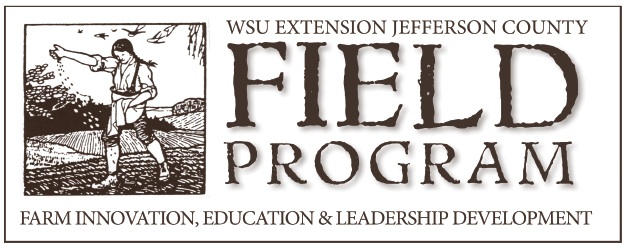In 2015, the Jefferson County Gleaning Coordinator was instrumental in the implementation of a food bank garden. The garden is located on the grounds of the building that houses the Port Townsend Food Bank and YMCA. The Coordinator prepared the soil, started seeds, cultivated, weeded and harvested organically grown produce for food bank clientele. The food bank garden grew a variety of fruits and vegetables and although a small space, generated over a quarter ton of produce.
There is an existing hoop house on the garden site which allowed for the cultivation of plant starts and heat loving vegetables such as tomatoes and peppers. In the fall, winter and early spring months, the hoop house is utilized to grow frost sensitive greens. The garden relies on volunteer labor recruited in part from food bank clientele. All volunteers were welcome to take enough fresh produce for a meal or two for their family.
The proximity of the garden to the food bank was terrific for waste reduction. The spoiled produce was collected and transported to the worm bins for composting.
Education Opportunities
The food bank garden is a tremendous venue for educational opportunities for all ages. Classes included seed starting, soil testing, soil amendments, vermiculture (worm composting), plant cultivation, harvest techniques and cover crops. Class participation included elementary school age children, seniors, homeless, mentally challenged and everybody in between.
A popular course for food bank participants was “Alternative Growing Options for Small Spaces.” Some of these options include; a pallet garden, container gardens, and innovative use of vertical space/fencing to suspend squash and cucumbers. These methods allow participants to become empowered by growing their own food, enabling healthy eating and increased nutrition.
In connection with the food bank garden, a cookbook was compiled and distributed to patrons of the food bank. The recipes feature simple preparation, utilizing common produce and dry goods (such as beans and rice) that are available at the food bank.

